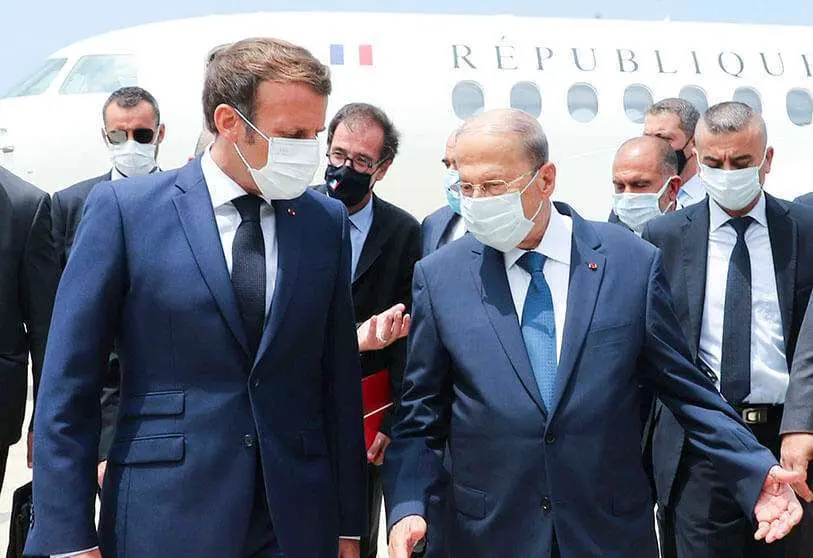New government formation in Lebanon fails

The efforts made by the French president, Emmanuel Macron, during his visit to Beirut to attempt to form a new government in Lebanon have failed, barely three weeks after attempting to do so. All the political parties had undertaken to set up a cabinet of independent technicians to replace the one that resigned following the explosion in the port of Beirut on 4 August, which left a tragic toll of 190 dead and 6,000 injured.
Mustapha Adib, who is in charge of forming the government, presented the resignation after finding that there was no way to agree on the distribution of the portfolios. The religious clashes, which have traditionally followed the distribution established in the Constitution, are the main cause of the breakdown in the negotiations. The representatives of Hezbollah and Amal were the triggers of the new crisis, with their demands.
The French government has not concealed its displeasure and anger at the failure to keep a promise made to the president. Last-minute calls from Macron failed to prompt the two Shiite parties to come up with the reasons that make a solution to the crisis urgent. As long as no government has been formed, external aid for rebuilding the damage caused and restoring normality cannot progress, the experts maintain.
Nor do the President of the Lebanese Republic, Michel Aoun, a Maronite Christian, and the Speaker of Parliament, a Muslim from Amal, Nabh Beri, appear to have been successful in mediating. Meanwhile, the country, which for a long time was an exemplary democracy in the midst of dictatorships, is bleeding to death in poverty and street violence. The disaster has left a trail of misery and conflict that is worsened at times by the absence of a government with sufficient political backing to deal with the situation.
The two Shiite parties that thwarted the agreement had become entrenched by demanding economic portfolios, which is interpreted as an attempt to control power. Analysts believe that it would be a huge mistake for these two parties, which are stigmatised by their terrorist tradition, to be the ones that manage the state coffers and carry the weight of international negotiations by seeking the expected aid.

